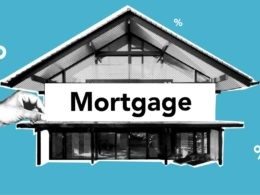Are you planning to buy your first home but unsure about the financial concepts involved? Many first-time buyers dive into the process without fully understanding how things like interest rates, loan terms, and budgeting affect their long-term financial health. Gaining a solid understanding of these key ideas can save you time, money, and stress.
Buying a home is one of the biggest financial decisions you’ll make, and understanding these essential concepts will set you up for success. In this blog, we will share important financial concepts every homebuyer needs to know.
Budgeting as a Foundation
The first concept to grasp is budgeting. A budget is not just about deciding what you can afford—it’s about understanding your income, expenses, and how much room you have for unexpected costs. A well-thought-out budget helps you set realistic goals for buying a home without overextending yourself.
When creating a budget for homebuying, include more than just the monthly mortgage. Consider other expenses like taxes, insurance, maintenance, and utilities. These ongoing costs are just as important as the upfront price of the house.
Interest Rates and Loan Terms
Interest rates are a big factor in figuring out how much your loan will cost over time. Higher rates mean higher monthly payments and more money spent overall. The loan term—whether it’s 15, 30, or somewhere in between—affects how long you have to repay the loan. If that sounds like a lot to figure out, don’t worry.
You can use an online mortgage calculator with interest to simplify things. These tools let you try out different rates and loan terms to see how they affect your payments. For example, choosing a shorter term might mean slightly higher monthly payments, but it could save you thousands in interest over the life of the loan. Exploring these details helps you understand your options better and make smarter financial decisions.
The Role of Credit Scores
Your credit score has a huge impact on the homebuying process. Think of it as a snapshot of how well you handle money, especially when it comes to paying off debts. Lenders look at this number to figure out if you’re a reliable borrower. A higher credit score usually means lower interest rates and better loan options, which can save you a lot of money.
For example, if your score is high, say 750 or more, a lender might offer you an interest rate of 5% on a $250,000 loan. That could mean a monthly payment of around $1,342. Now, if your score is lower, like 650, your rate might jump to 6.5%, and suddenly, you’re paying about $1,580 a month. Over the life of the loan, that difference adds up to tens of thousands of dollars in extra interest.
Before applying for a loan, take time to check your credit report. Fix any mistakes, pay down your debts, and avoid applying for new credit. These steps can help improve your score, giving you more options and saving you money when it’s time to buy a home.
How DTI Comes Into Play
Your debt-to-income ratio (DTI) is essentially a measure of the amount from your monthly income used to pay debts such as car loans, credit cards, or student loans. It’s a simple way for lenders to assess whether adding a mortgage payment to your plate is manageable. Think of it as a quick health check for your finances.
A lower DTI tells lenders you’re on top of your financial commitments and have room to take on a mortgage. Ideally, your total monthly debts, including your potential mortgage payment, should stay under 43% of your gross income. Reviewing your DTI before applying for a home loan can give you a clear picture of where you stand. If it’s too high, consider focusing on paying off some debt to improve your chances of approval.
Fixed vs. Adjustable-Rate Mortgages
Another concept to understand is the difference between fixed and adjustable-rate mortgages. Fixed-rate loans keep the same interest rate for the entire loan term, offering stability in your payments. Adjustable-rate loans start with a lower rate but can change over time, depending on the market.
Each option has pros and cons. A fixed-rate loan is predictable, while an adjustable-rate mortgage may be a better fit if you plan to sell the home before the rate adjusts. Understanding how these work helps you choose the right loan for your needs.
The True Cost of Homeownership
Many first-time buyers focus on the purchase price but overlook the ongoing costs of homeownership. Beyond the mortgage, you’ll need to budget for things like property taxes, homeowners insurance, and regular maintenance.
For example, a roof repair or replacing appliances can quickly add up. Experts recommend saving 1% to 3% of your home’s value annually for these expenses. Planning for these costs ensures you’re financially ready for the responsibilities of owning a home.
Closing Costs
Closing costs are a collection of fees required to finalize the home purchase. They include appraisal fees, title insurance, and legal paperwork. These costs typically range from 2% to 5% of the home’s purchase price.
Understanding these costs ahead of time allows you to budget properly. Ask your lender for a detailed breakdown so you’re not caught off guard on closing day.
Equity and Home Value Appreciation
Equity is the portion of your home that you own outright. As you make mortgage payments, your equity increases. Home value appreciation, on the other hand, refers to the rise in your property’s market value over time.
Both equity and appreciation are important concepts because they affect your financial stability and wealth-building potential. A home isn’t just a place to live; it’s also an investment.
The Importance of Preapproval
Preapproval is more than just a number from your lender. It’s a clear indicator of what you can afford and shows sellers that you’re serious about buying. The preapproval process involves a detailed review of your finances, including your income, credit score, and debt.
Getting preapproved early in your home buying journey gives you a clearer picture of your financial standing and strengthens your negotiating position when making an offer.
All in all, buying your first home is an exciting milestone, but it requires a solid understanding of key financial concepts. From budgeting and credit scores to interest rates and equity, these ideas help you make informed decisions throughout the process.
Take the time to educate yourself, ask questions, and seek advice from professionals. With this knowledge, you’ll be ready to navigate the homebuying journey confidently and make a smart investment in your future.












